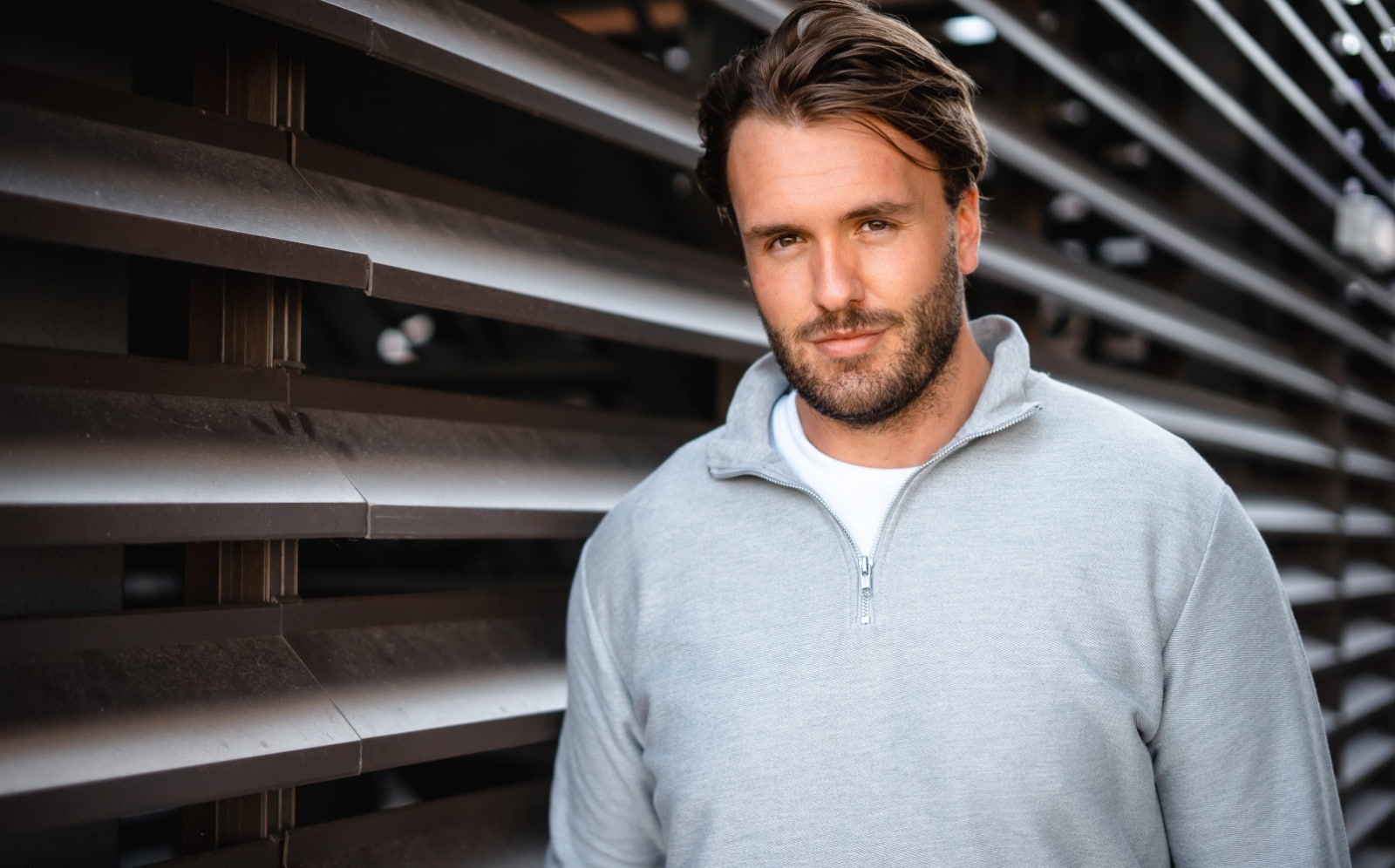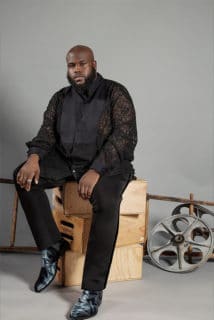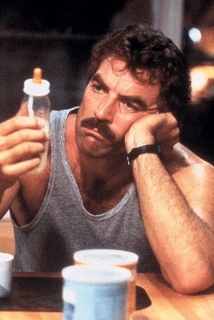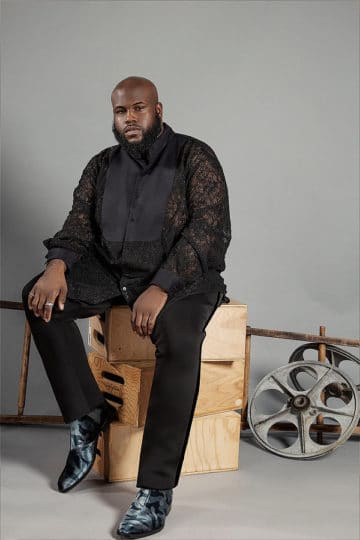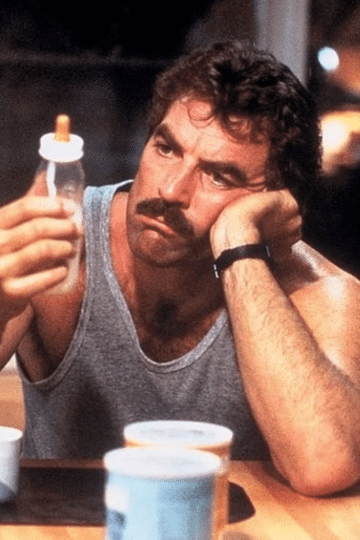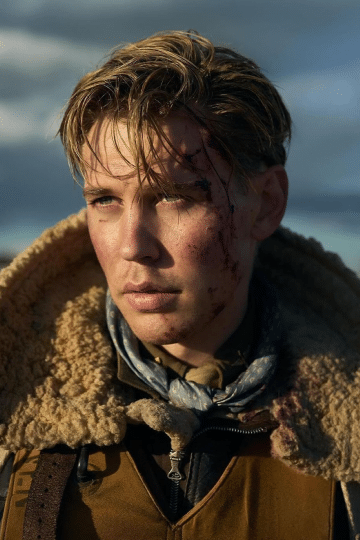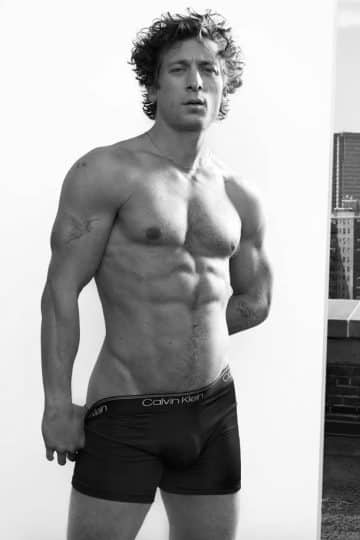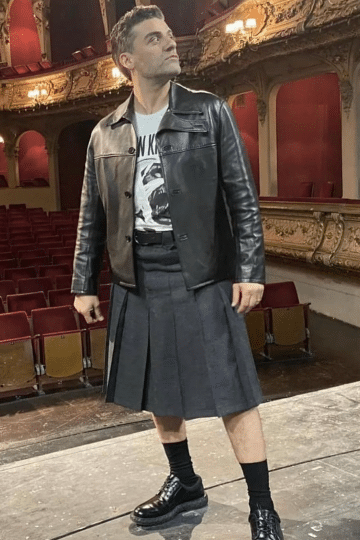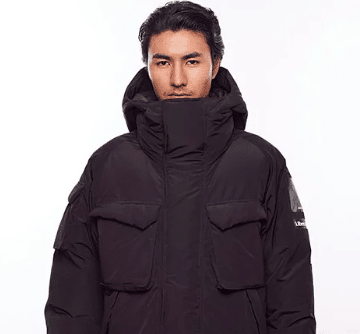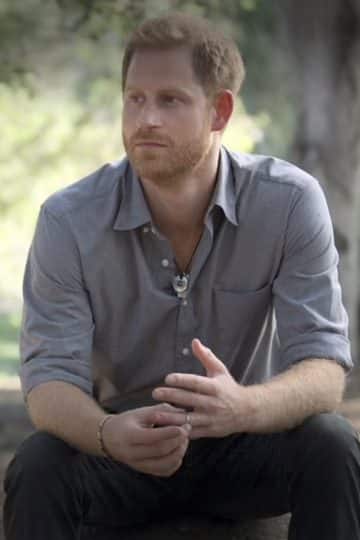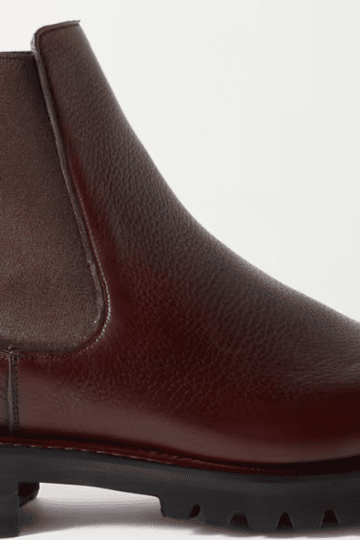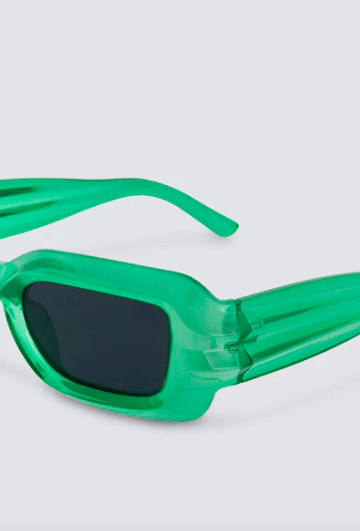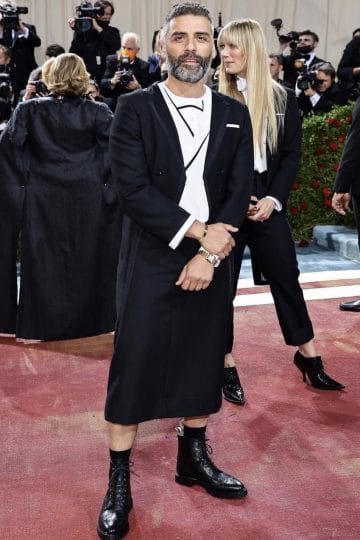Why different male body sizes need better representation
Style
Ben James, 'plus size' model and social media star, is on a mission to reduce stigmas around men's bodies and support everyone towards a more positive, realer, self-image.
Representing men in all their glorious forms is one of the most important issues for anyone interested in mental health and masculinity issues – it’s one that gained further impetus with Freddie Flintoff’s ‘Living with Bulimia’ documentary last week, but this year has seen another new hero emerging in this space. Ben James is a ‘plus-size’ model – though he’d no doubt argue that he is simply a model: indeed that is entirely the point of his message – who has amassed a sizeable following and millions of views on TikTok for his messages around body positivity delivered in brilliantly humorous, straight-talking fashion as befitting a man from God’s own city, Hull. Ben may just be the person to truly get men on board with battling fat-shaming, improving the body diversity on display in the media, and getting rid of the idea that larger figures automatically means ‘unhealthy’. Women’s body diversity campaigns have done great things, and it’s time for men’s campaigning to really get motoring. We talked to Ben about this work, and his career as a model, one unlikely from his upbringing as a rugby international’s son…
How have you kept yourself busy during lockdown?
Training. Back in April and May I though it’d last a couple of months so I thought I’d do a half marathon every day, to keep my mind and body busy. Whether I’m going to run it, walk it, whatever. Six weeks in and there was no sign of lockdown ending so I thought I can’t keep this going!
Then I got a kettlebell, a resistance band, and a skipping rope and took it out as a mobile gym to remote places to work out from lakes and rivers, all kinds of places. It was actually good for my mental health, away from the drama into nature. It was also a nice way to promote a positive message to other people to stay active.
Have did you get into modelling?
Modelling was always a foreign entity for me. I was really tall growing up: I hit 6 foot 6 at fourteen and hit 18 stone at that age. I was a huge, huge kid. I had body issues and my confidence was non-existent, I was very shy and introverted. I played a lot of sport but that kind of made it worse. Sport can be quite brutal when you stand out!
As I grew older I started to lose the weight and get more confidence, but then I’d get heavy again, as I was when I was playing a lot of rugby in my early twenties. I didn’t realise I had celiac disease which is basically an auto-immune disorder triggered by the gluten in wheat, malt, and barley. Its mostly seen as affecting women which I think is why sports nutritionists never assumed I had it. My body would swell whenever I ate bread or pasta, but as a rugby player you’re eating 3 to 5 thousand calories a day, and most of that is carbohydrates. So I was gaining weight like you wouldn’t believe, a stone a week sometimes. Which was mostly swelling, pure water. That drove me down into a hole and put my confidence way back.
When I got to about 24 that’s when we started to work out what it was. When we figured it was celiac disease, I lost 2 stone in the first week. I’d ballooned up to this 28 stone frame and within six months I was back down to 19 stone. I had a new body which was still big but a lot smaller than what I’d been living in. My confidence came back and I met this guy in America who was doing ‘big and tall’ modelling – we were the same dimensions, and I thought if he can do it I can, so I reached out to a couple of agencies and luckily enough I got signed.
It’s been two and a half years and we’ve done some brilliant campaigns I’ve been around the world and its done good things for my own personal self development. It got me out the rat race.
How have you found the fashion industry?
I’ve found it more positive than I thought it would be. The fashion industry has a bad stigma around it. It is very cutthroat but so are most businesses, media businesses in particular – if they don’t want you, they don’t want you. But I have seen a lot of change even in the time I’ve been involved: more acceptance around different body shapes and diversity.
How much of an issue in society do you think it is, and how far do we need to travel for broader acceptance of body diversity?
I think there’s a lot further to go. If we take a bigger framed guy and we put him in this ‘plus size’ category – that in itself is detrimental. We’ll accept you but only in this area. The real progress has to be made by putting those people in the front of house campaigns along with the ‘normal’ guys, the mid range guys. They should be seen together, bonding together. If we have a plus size campaign and a main range campaign we don’t connect the dots, we think there’s separate places.
One of the biggest challenges in media is that historically the big guy is the joke. James Corden, in my opinion, wouldn’t be where he is now if he didn’t make fun of himself. If he tried to be a serious person we wouldn’t allow it, we’d shove himself back in his box.
If you watched Freddie Flintoff’s documentary there was this bit where the media was giving him a lot of crap for being 19 stone and then the following week he had the game of his life for England. And he said at the end, “Not bad for a fat lad.” He had to say that to make people accept him. If he’d have been proud, it would have been get over yourself, you’re still fat. But because he was tongue in cheek it allowed him to get by. We have to move the conversation beyond this. 19 stone at 6 foot 4 is not that big. The fact he got so hammered is ridiculous.
What has to change for me is the language choice and the discussion around people’s appearance. ‘Ey up big lad, what did they feed you growing up?’ Its tongue in cheek but it wears people down. Get rid of that and you’ll address the problem. And for those people who do medically need to lose weight, they will, because they’re being encouraged, not laughed at, poked at, judged.
We have to create a warmer, gentle thing – just be nice. Be a nice bloke. It’s not difficult. Be decent to each other and it’ll change things.
There seems to have been a lot of conversations about diverse representations of women’s bodies – I guess because women have historically been more judged than men – but it hasn’t really extended to men yet…
I do have a few theories as to why but I believe it’s essential we give the lads the same support that the women have begun to give each other.
Women have done a fantastic job here. The women leading that movement initially took a lot of hits but they’ve managed to persevere and push through. The men’s side needs to do the same and that’s hopefully what I’m going to be doing.
The way I do it on social media I don’t get much of a backlash. That’s something I’m proud of because I want to see other guys to see it and think ‘He gets positive reinforcement so I want to do it.’ I don’t want them to see me getting shit because it will make them think when you do that kind of thing you get battered. So I’m very conscious of the things I say and the way I say them because I want lads to see it. I have to tell the truth, just open up. If I can be myself I can be accepted. There’s a lot of lads out there who are struggling. Who are in pain. The last thing they need is a punch in the nose for just speaking up.
How did you develop your social media stuff?
I did social alongside the modelling, largely on Instagram at the start with very little success. Extremely difficult to grow and get anyone’s attention. People didn’t want to talk about it.
Then TikTok came around and I started that about 6 months ago – it’s taken me from a very small following to a combined network of 240k people. TikTok have been sharing my content and letting people see it, to make up their own mind. Its organically grown – if I create content that connects in a real way then that grows, people will share that and want to support each other.
How much do you prep for the videos on there?
I used to prep for it think about what to do or not. And it would always flop because your expectations would be so high. The strongest ones have been off the cuff, something I genuinely wanted to say. I’d have a conversation with my mate or one of my girl friends and think they needs to hear this and I’d make a video aimed at her or him, and share it. And those are the ones that will hit 1 or 2 million views. Because it was real and I was speaking to a real person, and it just so happens that so many people relate to it.
You talk to women in support of their body issues too, it’s inclusive, like we’re all in it together…
Yeah getting a man to follow you is genuinely quite difficult because generally men like to follow athletes or musicians – it’s rare they’ll follow a male model because they think they’ll be looking at pictures of a bloke pouting in his undies. This has always been a female led movement and it makes perfect sense for me to be able to build that bridge, so I can not only support more women but indirectly support more men because they will see me on the women’s side of things without it seeming like its being rammed down their throats. Mothers, daughters, girlfriends will share that with the men. It’s a trickle-down effect to get in front of them in different ways
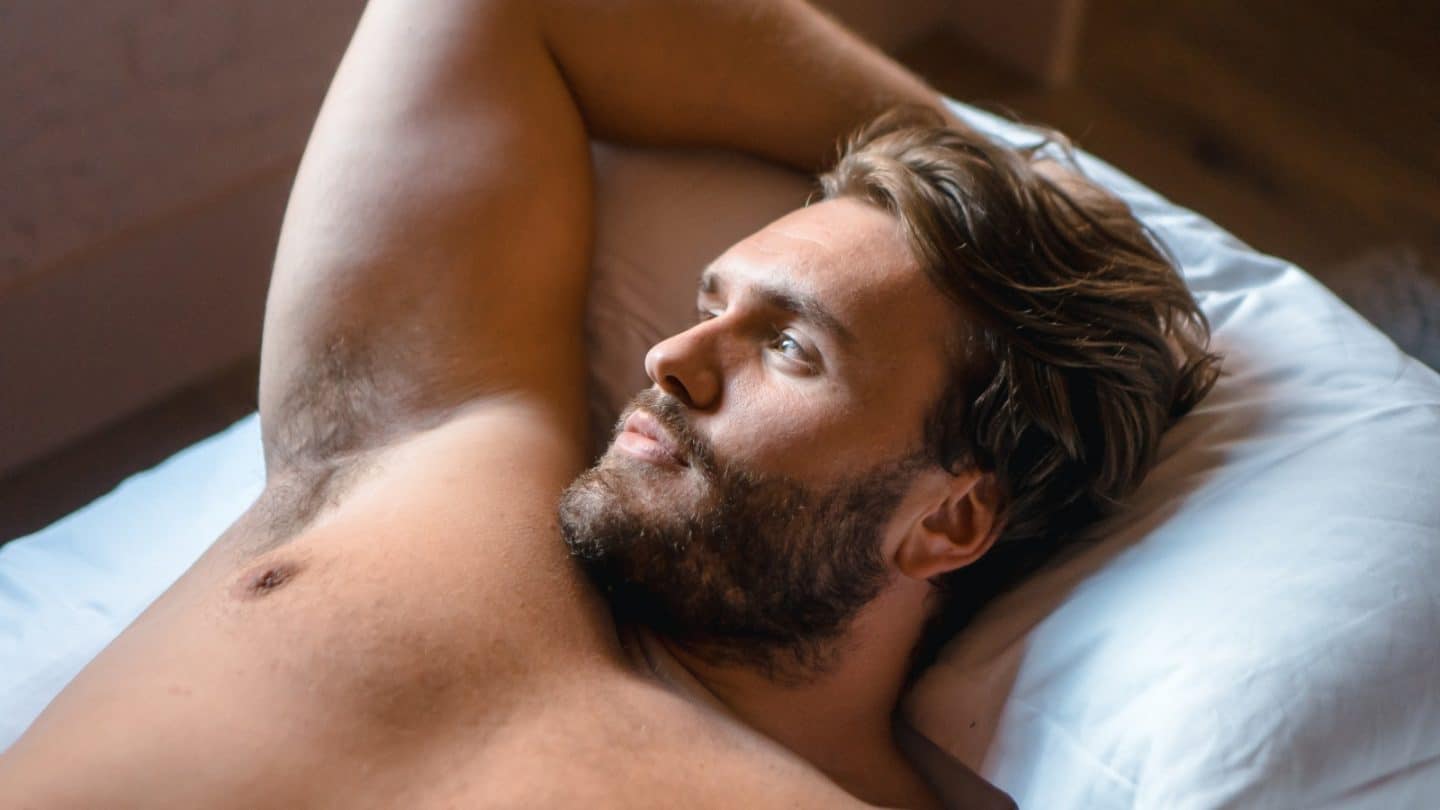
Your training is a big part of your videos, battling the assumptions that large people aren’t healthy.
Exactly. Fitness for me has been my life for nearly a decade. I’ve done marathons, cross fit competitions, any mad fitness challenge I can. But because I’m bigger people don’t believe it’s real. ‘How could you run a marathon under 4 hours, you’re 20 stone?’ Because I’m fit. Simple as that. ‘Where’s your abs?’ What’s that got to do with anything?
People in general have been conditioned to think fitness means less body fat, and it doesn’t. Fitness is a passion of mine and it’s a great area to connect with more people. Everybody should be thinking about being fit and being healthy. If coronavirus has taught us anything it’s that health is the only thing that can really get us through: your job, your income, can disappear but as long as you manage your health well and you stay fit, you have an anchor. That’s why I use that platform for this. Universally I think what we should all be striving for is to get fitter and healthier. But I also really want to change the stigma around being big and people believing you can’t be fit.
When I was younger I loved sport and fitness, but whenever I did it I was pointed at and laughed at. The clothes might not fit me well enough. That was another huge problem. Why Nike and Adidas don’t do 5xl or 6xl, baffles me. If you are that big it’s essential you get fit, but you’re not going to be able to if you can’t find clothes that fit you. If you can’t physically get the clothes on how can you go to the gym?
That’s a big challenge. I want to encourage more people to see that you don’t have to be shredded to start – you need to feel safe to be able to start and if you see someone like me who’s been every weight, as low as 15 stone and as high as 28 stone, that might help.
Men seem to be over training to the point of obsession and getting into dysfunctional eating habits to get the ridiculous body that seems to be idealised everywhere now – that looks like fitness but it’s not healthy…
It’s not. When I was 19, 20 there was a period when I embodied that lifestyle. I’d wake up at 4am, cook 6 meals for the day and it’d literally be a tower of steamed vegetables and steamed chicken. I’d take the liquid left from that, the veg juice, and that would be be a 2l drink. Then I would go for a 5am run, go to work, take an hour and a half lunch to do power lifting. And then in the evening I’d have rugby training and then on the night we’d do conditioning. And that was us 4 days a week. But I must have only been consuming 2000 calories a day. No alcohol, no carbohydrates, no nothing. And I got to the point where I was 15 stone at 6 foot 6 – that’s not an extremely low weight but to put your body through 4 sessions a day with only 2000 calories wasn’t good. It got to the point where I had heart palpitations and liquid streaming out of my nose for no reason if I leant over. I realised I was in a bad place. I thought I was living a good, optimum life and had bought into paleo cavemen thing, but it’s extremely dangerous.
If you looked at me you’d think I was fit as a fiddle but upstairs was shitshow. Mentally. I was weighing myself 4 or 5 times a day, getting that weight as low as possible. But what’s healthy about that?
Chemically, hormone-wise, you are destroying yourself. That’s where a lot of the mental health issues come from. Not only the obsession of it but the actual vessel you’re building, filling your body with free radicals that are completely uncontrolled. It’s a recipe for disaster, and that’s what happens to a lot of these lads. Especially if they’ve started big because people reinforce it: “Good on you, lad. You look better than the last time I saw you.’ I’ve not eaten for 3 days that’s probably why!
We need to stop commenting on bodies. Rather than saying they look good say, ‘Its good to see you.’ Whats wrong with that?!
Do you think men recently have got better with this?
I’d say men are getting better, 100%. My dad used to play international rugby for Great Britain, Hull KR and Hull FC, St Helens, and he embodied that working class 70s/80s mentality: rough, hard. It was a different time. And even he has changed in the last 5 years. Him and his friends in the pub – and a couple of them are ex-SAS, big macho men – even their conversations have softened. If you mention mental health they all stop and talk. Unfortunately a couple of them have taken their own lives in recent years, which has triggered them to start looking at themselves and each other differently. They’ll notice if one of them starts to dress scruffy rather than take pride in themselves or are drinking a hell of a lot more. They’ve got better managing each other, and being more aware.
Things like the Freddie Flintoff documentary are testament to men getting better at communicating. I do think there’s change and a bloody positive one at that.

Join The Book of Man
Sign up to our newsletters for more from the frontline of modern masculinity.





